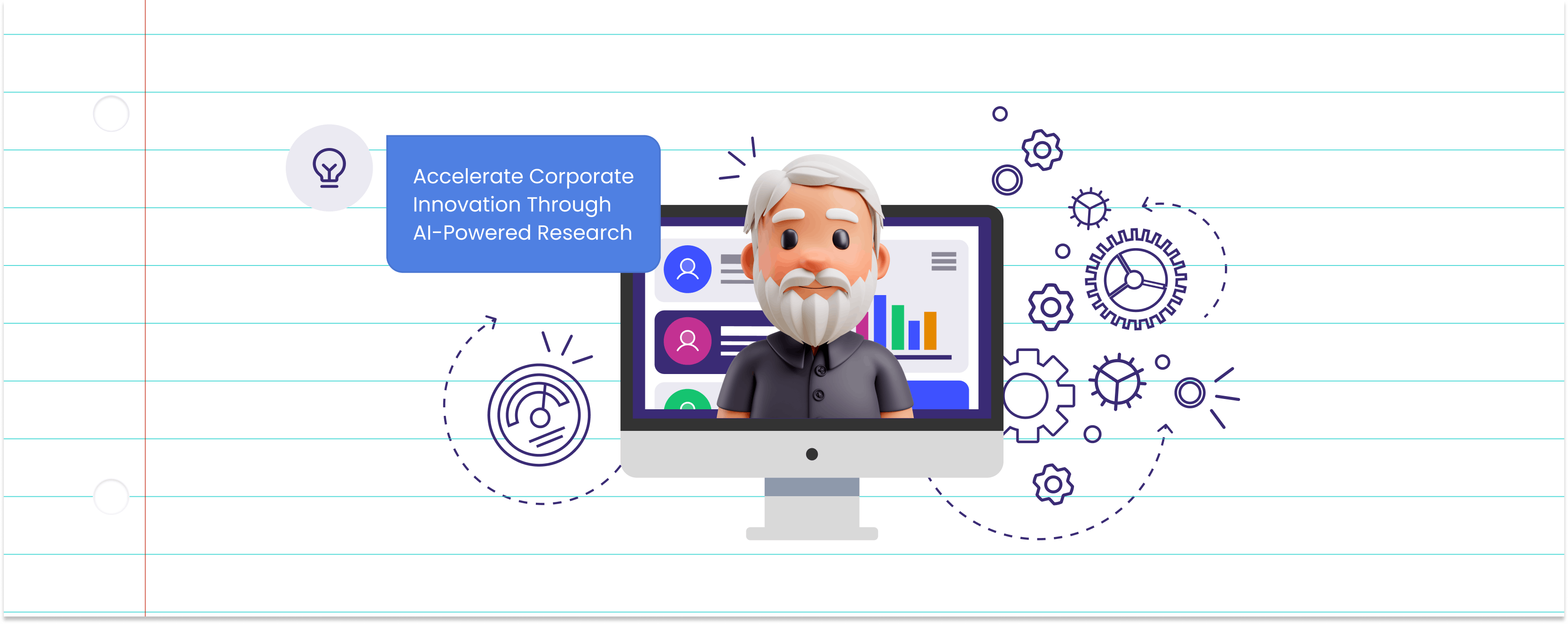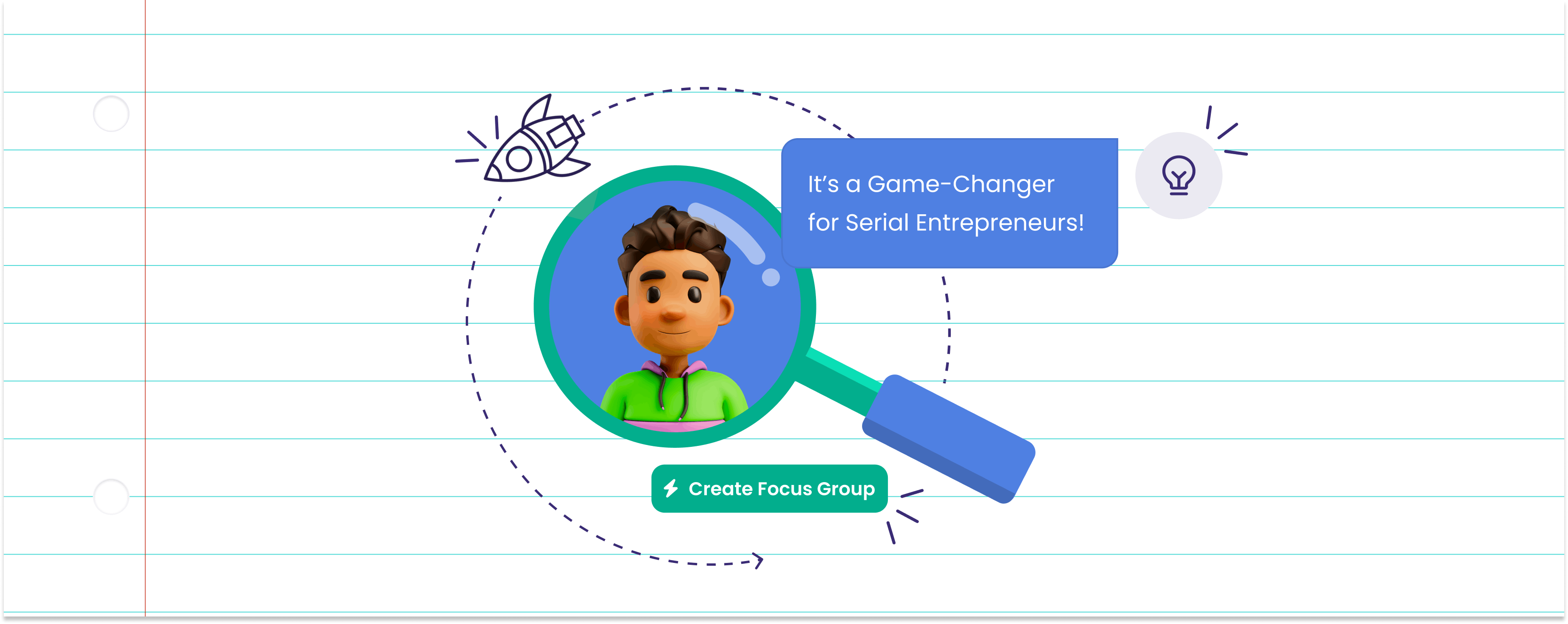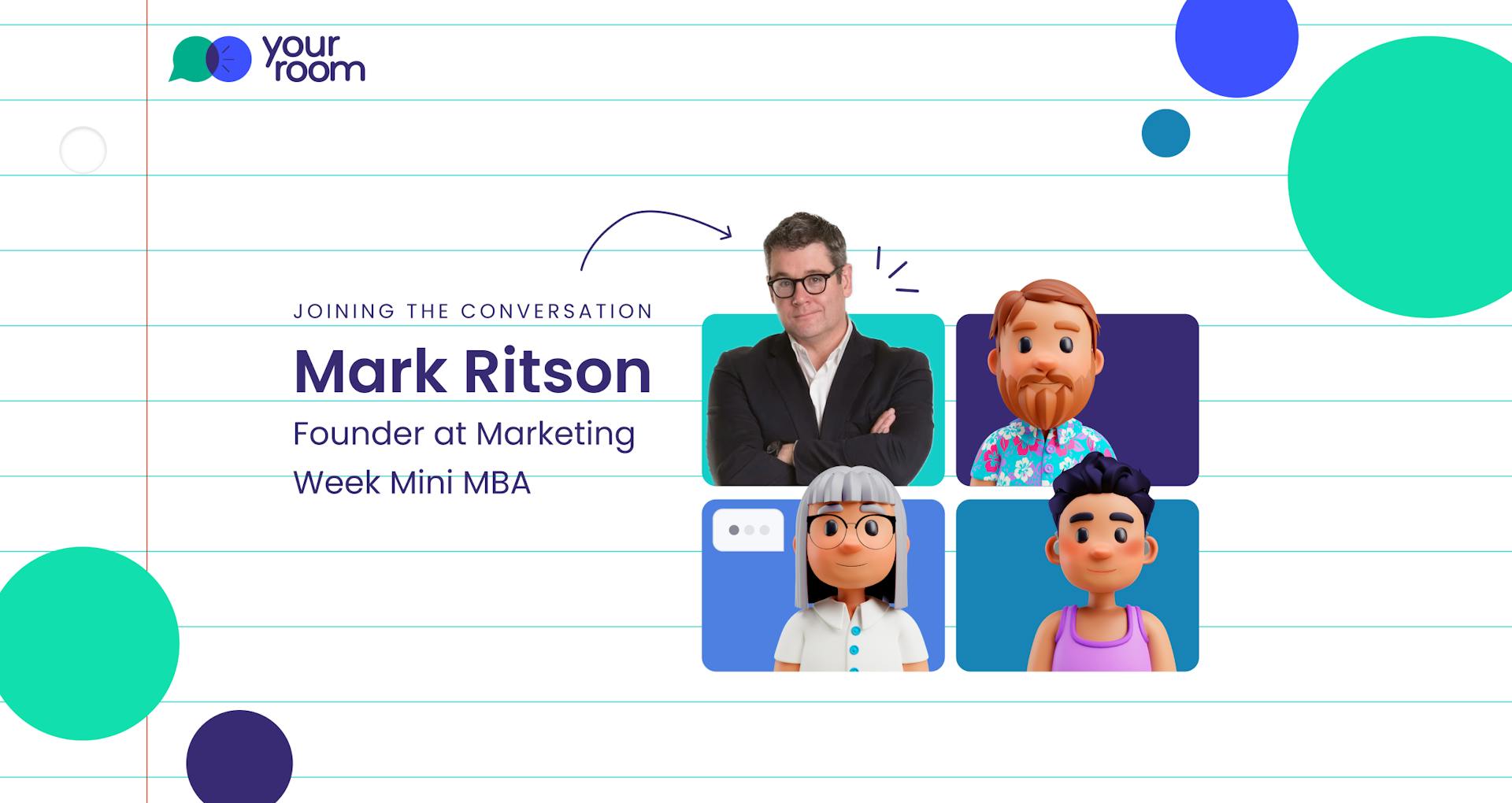
Why Mark Ritson Believes AI is Revolutionising Market Research
Like many marketers, I’ve been a follower of Mark Ritson for years, and in September 2023, I finally took the plunge and enrolled in his MiniMBA course. Fast forward over a year, the course content is still a key part of my toolkit. While revisiting the market research module recently, I came across a quote from Mark that immediately struck a chord. It perfectly articulated the value of YourRoom in the evolving market research landscape and simultaneously reflected the gap YourRoom is addressing:
Mark Ritson said in April 2024:
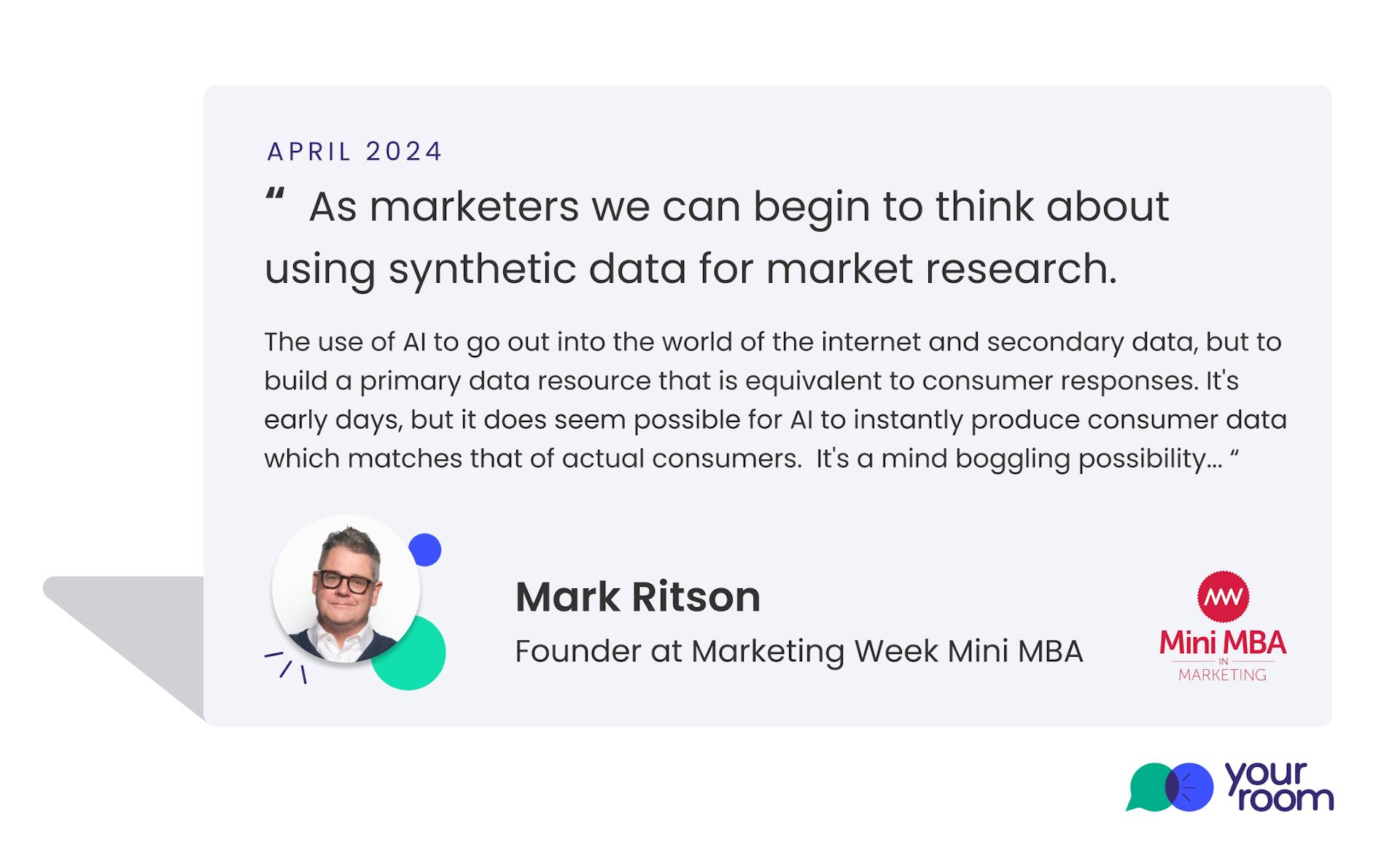
Primary Research
Primary research involves gathering new data directly from your target audience through surveys, focus groups, or experiments. It provides insights that are specific to your brand and business needs.
Pros:
- Highly relevant to your objectives
- Provides fresh and actionable insights
Cons:
- Expensive and time-consuming to execute
- Requires expertise to design and analyse effectively
Secondary Research
Secondary research is the process of collecting and analysing existing data. It involves sources like:
- Government reports
- Industry whitepapers
- Competitor case studies
- Published market trends
Pros:
- Cost-effective and time-saving
- Offers broad context for decision-making
Cons:
- May be outdated or lack specificity
- Not tailored to your audience
Secondary research provides a big-picture overview but often falls short in terms of depth and relevance. On the other hand, primary research delivers targeted insights but at a much higher cost and time commitment. Ultimately, you need both types of research to build a complete picture of your target audience.
AI has the potential to bridge the gap between primary and secondary research by generating insights that are faster, cheaper, and still grounded in relevant consumer data.

What Mark Ritson’s Quote Really Means
The idea of “synthetic data” introduces a game-changing concept: AI tools that can aggregate and analyse vast amounts of secondary data to simulate the responses of actual consumers. In other words, marketers can interrogate secondary data to predict what the primary data could show, in a fraction of the time and for a fraction of the cost. This doesn’t mean replacing human feedback entirely but rather augmenting traditional methods with AI-generated insights.
Imagine being able to test a new campaign idea overnight or quickly gauge customer sentiment about a product feature. AI can reduce the reliance on costly and time-intensive research methods while delivering results that are statistically robust and actionable.
The days of waiting weeks for survey results or struggling to find the right focus group participants are fading fast. Tools like YourRoom represent the next evolution of market research, where actionable insights are accessible to marketers of all budgets and timelines.
How YourRoom Is Leading the Way
This is where YourRoom comes in.
YourRoom is designed to speed up the early stages of market research.
You can gain primary research insights, like you would from focus groups, by leveraging existing secondary research sources, such as industry whitepapers. While publicly available (secondary) data can typically get you 80% of the way to actionable insights, it’s frustrating that you can’t delve deeper into it or ask questions specific to your needs.
Here’s how YourRoom works:
- Generate Virtual Focus Groups: Get instant feedback from AI-generated consumer personas that reflect the demographics and psychographics of your target market.
- Simulate Market Responses: Test your campaign ideas, product features, or messaging with realistic consumer scenarios.
- Save Time and Resources: What once took weeks to organise and conduct can now be achieved in minutes, allowing you to stay agile and responsive.
Unlike generic market research tools, YourRoom doesn’t just crunch numbers—it provides context and recommendations, helping marketers make smarter decisions without sacrificing depth or quality.
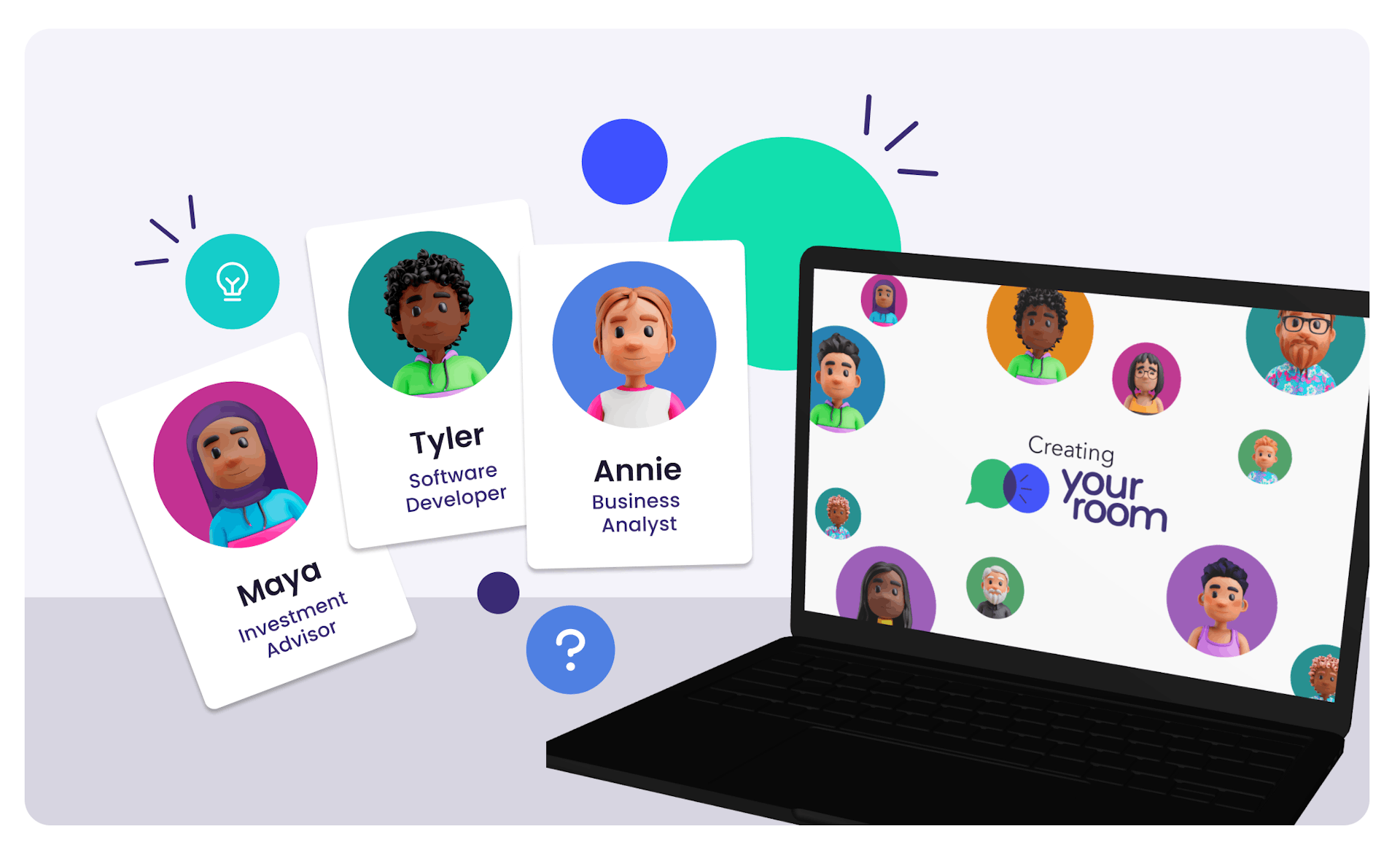
Conclusion
Mark Ritson’s insights into synthetic data and AI reflect an undeniable shift in how we approach market research. As marketers, we need to embrace the tools that can make our processes faster, smarter, and more cost-effective.
YourRoom embodies this transformation by merging the best of primary and secondary research. It allows marketers to extract deeper insights from existing data and make informed decisions without the delays and costs of traditional methods. It does not replace properly conducted primary research, but it offers a fast, efficient way to validate ideas and minimise financial risks.
